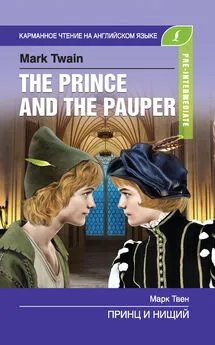Oscar Wilde - The Happy Prince and Ohter Tales
- Название:The Happy Prince and Ohter Tales
- Автор:
- Жанр:
- Издательство:неизвестно
- Год:неизвестен
- ISBN:нет данных
- Рейтинг:
- Избранное:Добавить в избранное
-
Отзывы:
-
Ваша оценка:
Oscar Wilde - The Happy Prince and Ohter Tales краткое содержание
The Happy Prince and Ohter Tales - читать онлайн бесплатно полную версию (весь текст целиком)
Интервал:
Закладка:
“‘It is quite mended (она полностью заделана) ,’ answered little Hans (ответил маленький Ганс) , coming down the ladder (спускаясь по лестнице) .
“‘Ah (ах) ’! said the Miller, ‘there is no work so delightful (нет никакой такой = более восхитительной работы; delight — восторг, восхищение, удовольствие) as the work one does for others (чем та работа, что делается для других) .’
“‘It is certainly a great privilege (на самом деле, это огромная честь: «привилегия») to hear you talk (слушать, как вы говорите) ,’ answered little Hans, sitting down (присаживаясь) , and wiping his forehead (и вытирая лоб; to wipe) , ‘a very great privilege (очень большая честь) . But I am afraid (но я боюсь) I shall never have such beautiful ideas (что у меня никогда не будет таких прекрасных мыслей) as you have (какие /есть/ у вас) .’
sunset ['sλnset ] cheery ['t∫i(ə)ri ] delightful [di'laitf(ə)l ] privilege ['privilidζ ]
“He worked there all day long, till sunset, and at sunset the Miller came to see how he was getting on.
“‘Have you mended the hole in the roof yet, little Hans?’ cried the Miller in a cheery voice.
“‘It is quite mended,’ answered little Hans, coming down the ladder.
“‘Ah’! said the Miller, ‘there is no work so delightful as the work one does for others.’
“‘It is certainly a great privilege to hear you talk,’ answered little Hans, sitting down, and wiping his forehead, ‘a very great privilege. But I am afraid I shall never have such beautiful ideas as you have.’
“‘Oh! they will come to you (о, они придут к тебе) ,’ said the Miller, ‘but you must take more pains (но ты должен прилагать больше усилий; pain — боль; страдания, труды) . At present (в настоящее время) you have only the practice of friendship (у тебя есть только практика дружбы) ; some day (когда-нибудь /в один прекрасный день/) you will have the theory also (ты приобретешь: «ты овладеешь» также и теорию) .’
“‘Do you really think I shall (вы, правда, считаете, что я смогу: «овладею теорией») ?’ asked little Hans (спросил маленький Ганс) .
“‘I have no doubt of it (я в этом не сомневаюсь: «у меня нет в этом сомнения»; doubt — сомнение, нерешительность) ,’ answered the Miller (ответил Мельник) , ‘but now that you have mended the roof (но теперь, когда ты уже починил крышу) , you had better go home and rest (ты бы лучше пошел домой и отдохнул) , for I want you (а то я хочу, чтобы ты) to drive my sheep to the mountain to-morrow (отогнал моих овец завтра в горы: «гору»; to drive — водить, ездить; гнать /скот/) .’
pain [pein ] present ['prez(ə)nt ] practice ['præktis] theory['θi(ə)ri]
“‘Oh! they will come to you,’ said the Miller, ‘but you must take more pains. At present you have only the practice of friendship; some day you will have the theory also.’
“‘Do you really think I shall?’ asked little Hans.
“‘I have no doubt of it,’ answered the Miller, ‘but now that you have mended the roof, you had better go home and rest, for I want you to drive my sheep to the mountain to-morrow.’
“Poor little Hans (бедный маленький Ганс) was afraid to say anything to this (боялся что-нибудь сказать = возразить на это) , and early the next morning (и рано следующим утром) the Miller brought his sheep round to the cottage (Мельник пригнал: «привел» своих овец к хижине; to bring (brought) /round / — приносить; приводить /с собой/) , and Hans started off with them to the mountain (и Ганс отправился с ними в горы; to start — отправляться, пускаться в путь, to start off = зд. to start out — отправляться в путь) . It took him the whole day (целый день у него ушел на то; to take — брать, хватать, take + сущ. = означает действие, носящее общий характер: to take time — занимать время) to get there and back (чтобы добраться до гор и вернуться назад: «туда и обратно») ; and when he returned (и когда он вернулся) he was so tired (он настолько устал: «был таким уставшим») that he went off to sleep in his chair (что он заснул прямо в своем кресле; to go (went, gone) off — уходить; впадать в какое-либо состояние, to go off to sleep — забываться сном) , and did not wake up (и не просыпался) till it was broad daylight (до самого дня = и проснулся при ярком свете дня; broad — широкий; полный, совершенный; light — свет; дневной свет, день) .
“‘What a delightful time (какое восхитительное время) I shall have in my garden (я проведу в своем саду) ,’ he said, and he went to work at once (и он немедленно принялся за работу; to go (went, gone) to work — приняться за дело, начать работать) .
cottage ['kOtidζ ] chair[t∫eə ] broad [brO:d ]
“Poor little Hans was afraid to say anything to this, and early the next morning the Miller brought his sheep round to the cottage, and Hans started off with them to the mountain. It took him the whole day to get there and back; and when he returned he was so tired that he went off to sleep in his chair, and did not wake up till it was broad daylight.
“‘What a delightful time I shall have in my garden,’ he said, and he went to work at once.
“But somehow (но, так или иначе) he was never able (ему так и не удалось: «он так никогда и не смог») to look after his flowers at all (вовсе поухаживать за своими цветами; to look after smb., smth. — присматривать, ухаживать, заботиться за кем-либо, чем-либо) , for his friend the Miller (так как его друг Мельник) was always coming round (постоянно: «всегда» заходил; to come round — объехать; заходить, заезжать) and sending him off on long errands (и отсылал его с дальними поручениями; long — длинный, удаленный) , or getting him to help at the mill (или заставлял его помогать на мельнице; to get smb. to do smth. — заставлять, убеждать, уговаривать кого-либо делать что-либо) . Little Hans was very much distressed at times (временами маленький Ганс был очень встревожен; distress — горе, беда, причина страданий; to distress — причинять горе, тревожить) , as he was afraid (так как он боялся) his flowers would think (что его цветы подумают) he had forgotten them (что он /совсем/ забыл о них; to forget (forgot, forgotten)) , but he consoled himself by the reflection (но он утешал себя размышлениями о том; reflection — отражение; размышление, мысли) that the Miller was his best friend (что Мельник был его лучшим другом) . ‘Besides (кроме того) ,’ he used to say (говаривал он) , ‘he is going to give me his wheelbarrow (он собирается подарить мне свою тачку) , and that is an act of pure generosity (а это очень: «абсолютно» благородный поступок; act — дело, поступок; pure (прил.) — чистый, pure (нареч.) — чисто; диал. совершенно, совсем) .’
errand ['erənd ] console[kən'səυl] generosity["dζenə'rOsiti ]
“But somehow he was never able to look after his flowers at all, for his friend the Miller was always coming round and sending him off on long errands, or getting him to help at the mill. Little Hans was very much distressed at times, as he was afraid his flowers would think he had forgotten them, but he consoled himself by the reflection that the Miller was his best friend. ‘Besides,’ he used to say, ‘he is going to give me his wheelbarrow, and that is an act of pure generosity.’
“So little Hans worked away for the Miller (так маленький Ганс продолжал упорно работать на: «для» Мельника) , and the Miller said (и Мельник рассказывал) all kinds of beautiful things (всякого рода прекрасные вещи) about friendship (о дружбе) , which Hans took down in a note-book (которые Ганс записывал в блокнотик; to take (took, taken) down — зд. записывать) , and used to read over at night (и, бывало, перечитывал по ночам; to use — употреблять; иметь в прошлом обыкновение делать что-либо) , for he was a very good scholar (так как он был очень прилежным: «хорошим» учеником; scholar — ученый; учащийся) .
Читать дальшеИнтервал:
Закладка:
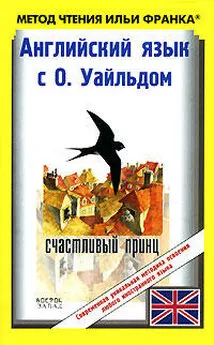
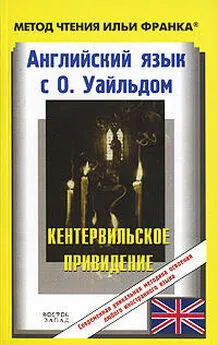
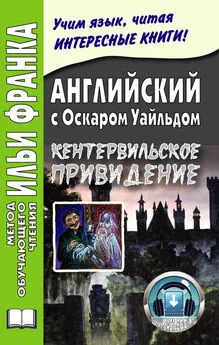
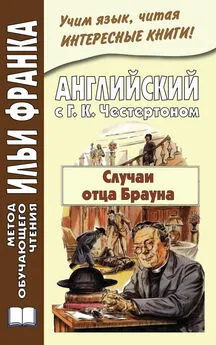
![О Генри - Принцесса и пума [The Princess and the Puma]](/books/1076182/o-genri-princessa-i-puma-the-princess-and-the-pum.webp)

